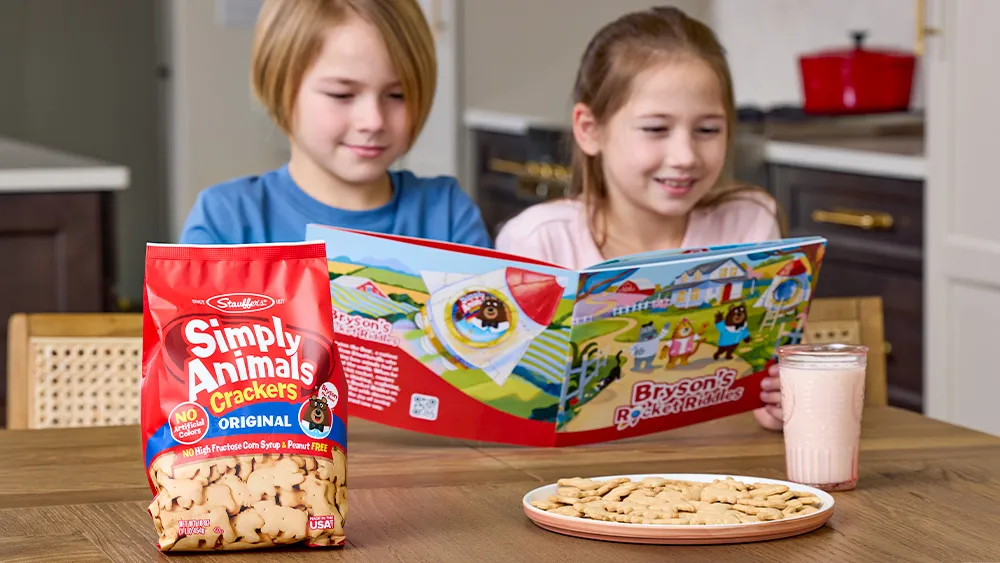Bob Miller is 70 years old. It is an age when most people struggle to recall their accomplishments, embellish their successes and minimize their failures.
Bob Miller is 70 years old. It is an age when most people struggle to recall their accomplishments, embellish their successes and minimize their failures.
For Miller, however, it appears that the best is yet to come. For those not paying attention, he is about to assume control of the second-largest grocery retailer in America, an event that will coincide with the completion of the deal that will, before year’s end, bring together the Albertsons and Safeway food chains.
While Walmart will remain America’s largest food retailer, the Albertsons-Safeway combination will emerge as a strong No. 3, behind that company and Kroger. More important, the new entity will dominate in many major markets throughout the southwestern and western United States, and will offer formidable competition to Kroger and other food retailers in many parts of the country.
Though unclear at this point as to specifics, Miller, who has enjoyed a storied career in food and drug retailing, will surely emerge as the key executive in this new entity, overseeing, coordinating and directing a 2,400-store grocer that will surely influence supermarket retailing in America.
Characteristically, Miller plays down his new role, though his presence has clearly precipitated this merger — his presence and his past performance. Over a lifetime spent in mass retailing, he has influenced every company with which he has been associated. He resuscitated Fred Meyer, a food retailer that had been written off by virtually every industry observer. He revived a Rite Aid drug chain that the entire sector had dismissed as hopeless. In his current role he has successfully cobbled together the remnants of the Albertsons supermarket chain and stunningly brought it back to life, against all odds and every prediction.
Miller has succeeded in his career for many reasons. Foremost among them is the fact that he is a throwback to a different era in mass retailing, a time when the customer came first, suppliers were equal partners in the business, top managers shared in decisions, and employees were the people who made those decisions work. Much lip service is still paid to those precepts, but too often they become casualties of senior managers with huge egos and little tolerance for conflicting ideas or participatory management.
Reminiscent of different times as well is Miller’s lack of ego. Confident in his abilities, sure of his instincts, assured in his interactions with his peers and his subordinates, he is nonetheless not afflicted by the cult of personality that often surrounds such individuals. Thus, he would rather shun the limelight than bask in its glow. He would rather give credit than receive it. He would rather rely on the performance of others than shoulder the burden of day-to-day retailing by himself.
One question remains, however: Is this latest challenge too imposing, too high a mountain to climb, too big a hurdle to master — even for Bob Miller? He is, as stated, 70 years old. He has a wife and family, whom he clearly enjoys spending time with. He has other activities, other interests, other calls on his time.
Then there are the many issues surrounding Safeway. It is clearly a grocery retailer not currently at the top of its game. It has struggled with basic issues, and even now it is a retailer uncertain as to how to approach the future. It has changed top managers, with the recently departed chief executive suddenly being questioned about decisions he made and implemented a decade ago. Some of its stores are old, others obsolete, still others victims of changing consumer tastes and preferences. Finally, there’s the age-old question of how Safeway will be melded into Miller’s existing operation.
In the end, it all returns to Bob Miller. It is safe to say that the Safeway-Albertsons situation is not the most challenging Miller has yet faced in his retailing career. In their way, Fred Meyer and Rite Aid each presented more obstacles. And Miller quickly identified and prioritized those obstacles and, working with a deep and talented group of people both inside and outside those companies, fixed the problems.
Against that background of success, his current prospects and his impeccable credentials, there is no reason to doubt that Safeway-Albertsons will emerge as the crowning success of Miller’s brilliant retailing career.





